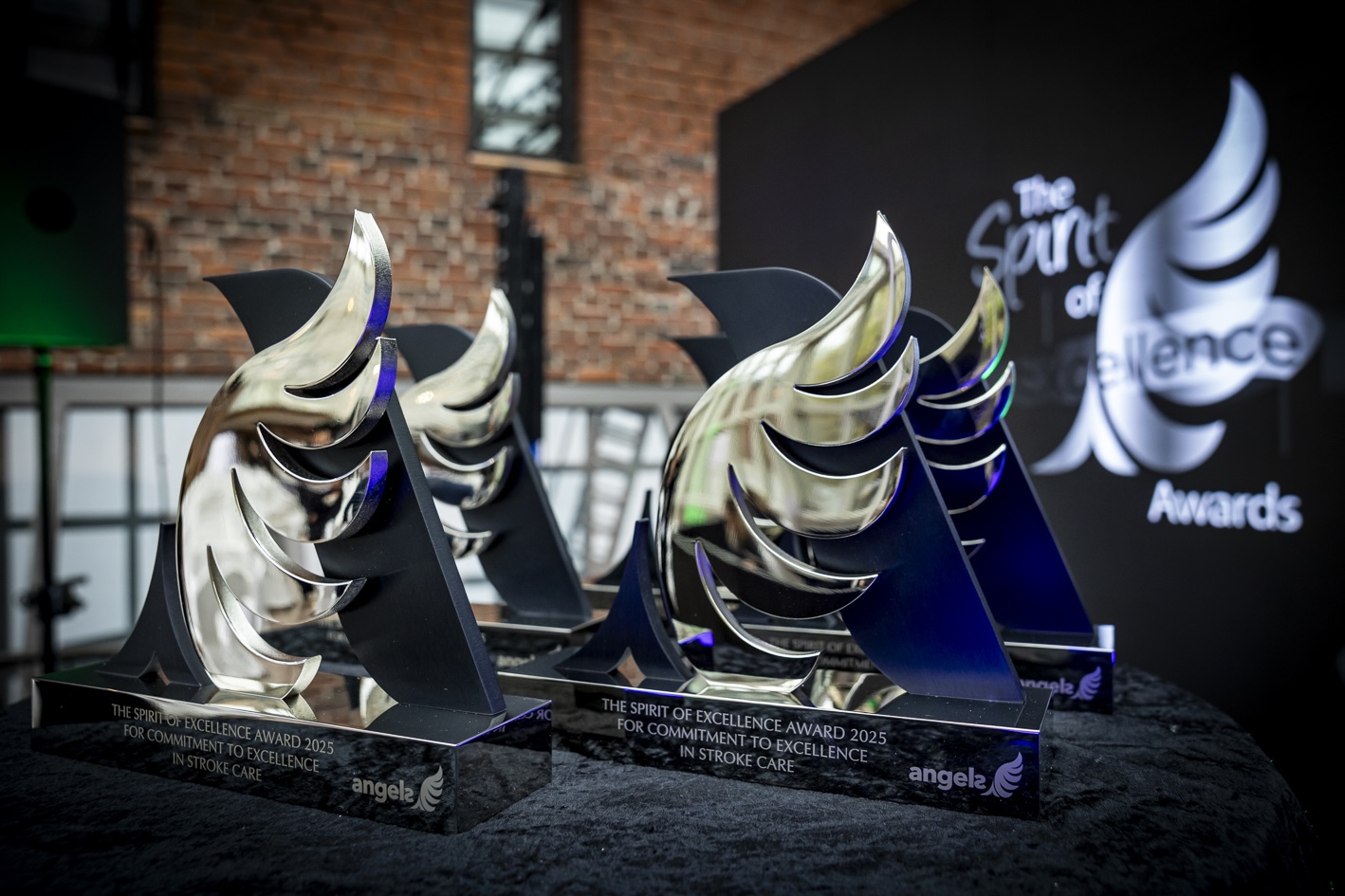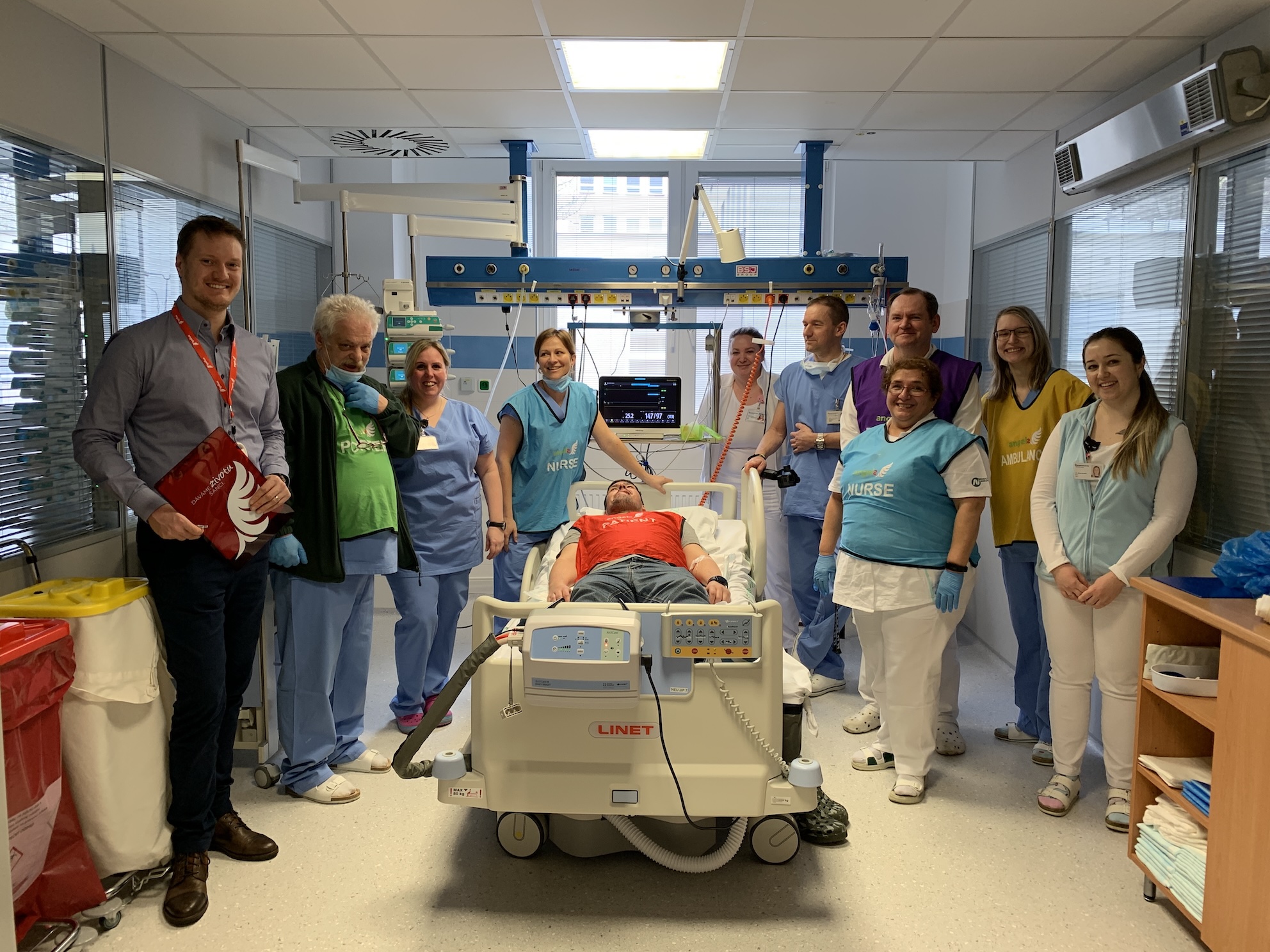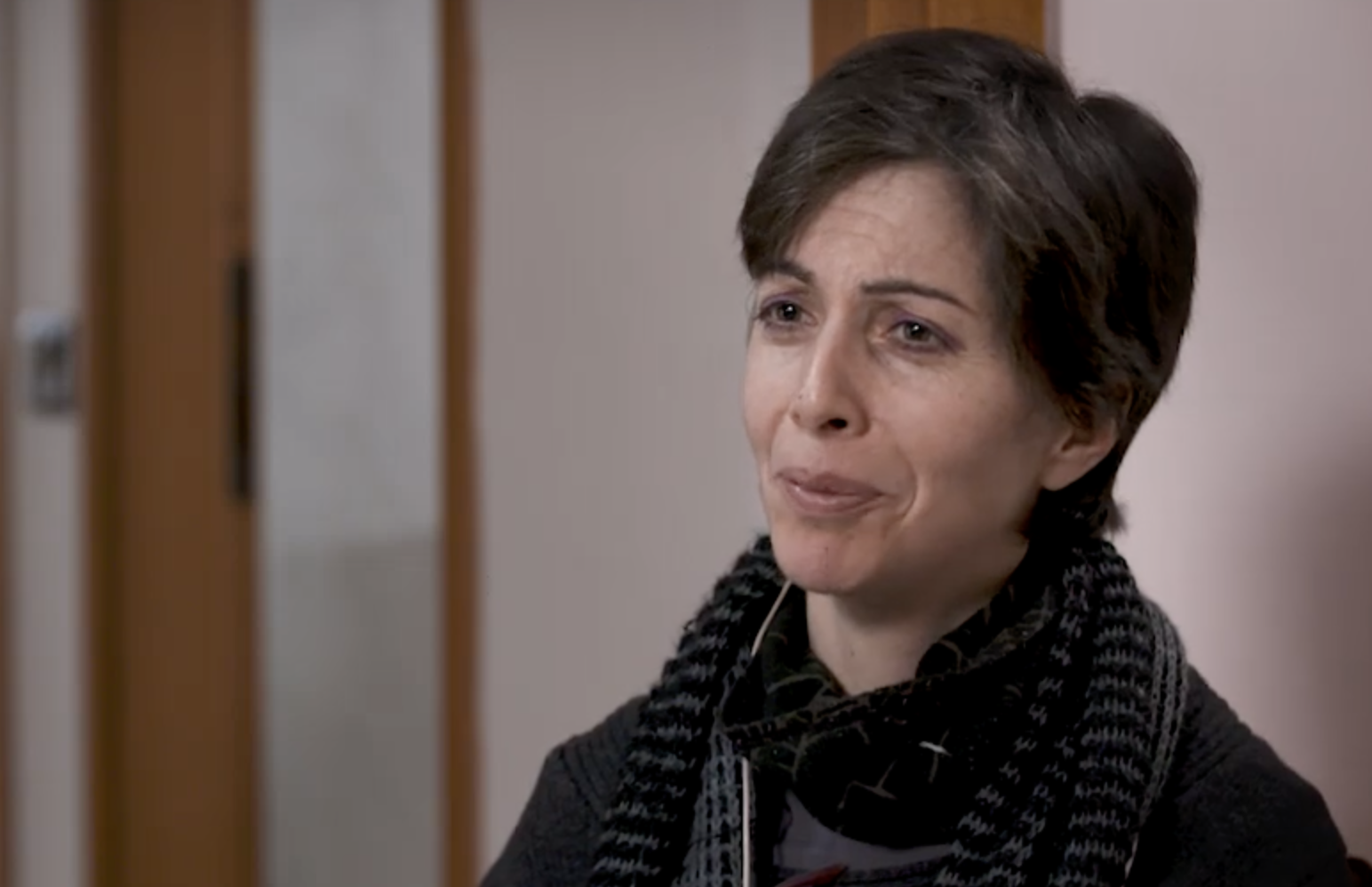
Життя компанії FABIANA Cinelli змінилося о 18:30 у неділю в квітні 2012 року.
Останнє, що вона пам'ятає, — це розмова по телефону зі своєю мамою, а потім вставляння її молодшого сина в ліжко та поцілування його вночі.
Через кілька хвилин її партнерка знайшов її на підлозі ванної кімнати, де вона звернулася по допомогу через головний біль. Розповідаючи свою історія на відео, записаному через шість років, Фабіана підносить пальці своєї лівої руки до губ так, ніби розблоковує слово для «планшета».
Батьки Фабіани були в лікарні, коли вона приїхала, коли були попереджені одночасно з невідкладна медична допомога, а тепер не в змозі говорити або рухати її правою рукою.
Ні! Ні! Вони протестували, коли лікар, який працює, запитав, чи 37-річна Фабіана була користувачем наркотиків чи істеричною: «Вона, напевно, перенесла інсульт. Ви розумієте, що таке інсульт?»
Комп’КТ-сканування Фабіани була в нормі — ймовірно, зміни, викликані інсульт, ще не були видимими при неконтрастній КТ. КТ-ангіографія або МРТ, обидва з яких були обладнані лікарнею, не розглядалася. Замість цього було проведено люмбальну пункцію.
Через деякий час черговий лікар прийшов на роботу, і, знайшовши напівпаралізовану Fabiana, негайно поставив діагноз ішемічний інсульт. Він наполягав на тому, щоб її перевели в лікарню в Римі, але колеса міжлікарняної передачі подрібнювалися повільно, а до того часу, як Фабіана досяг Риму приблизно о 13:00 у понеділок, пройшло 15 годин з того часу, як її було виявлено на підлозі в ванній кімнаті.
«Уявіть, — говорить вона, вказуючи на голову, — «стан, в якому повинен був бути мій мозок».
Чотири місяці минули до того, як Фабіана повернулася додому, а два роки до того, як вона сказала своє перше слово. Кінець її шлюбу спричинив прорив. Вона йде пальцями своєї лівої руки, щоб продемонструвати, що її колишній партнер прямує до дверей. Не маючи нікого говорити від її імені, вона мала знайти свій власний голос.
Вона почала робити невеликі речення: «Привіт, слава. Хосе лавр». – наче хтось опановує основи іноземної мови. Але вдень стало краще, і незабаром вона змогла запитати «аперитив, і чи можете Ви додати трохи льоду і шматочок лимона?».
«Єввіва!» сміється, кидаючи кулак.
Вона знову сміється, згадуючи про перегляд гри Ліги чемпіонів УЄФА після того, як почалося нормальне життя. «Я співаю!» Вона виражає і заходить в італійський національний анімат, тримаючи час одним пальцем.
Fratelli d'Італія,
l’Італія s’è desta ...
Інсульт, можливо, вплинув на її мовлення та ходу, але це не зменшило її почуття гумору та не вкрало озвучення її шарму. Її сила очевидна, коли вона оголошує на камеру: "Наймолодші щасливчики в трагедії. Ми сильніші. У нас є мета в житті. У нас є час, ми пам'ятаємо, як рухати ногою, рухати іншу. З когнітивних міркувань ми сильні... Давайте будемо разом і дамо одна одній силу, тому що інсульт не може виграти».
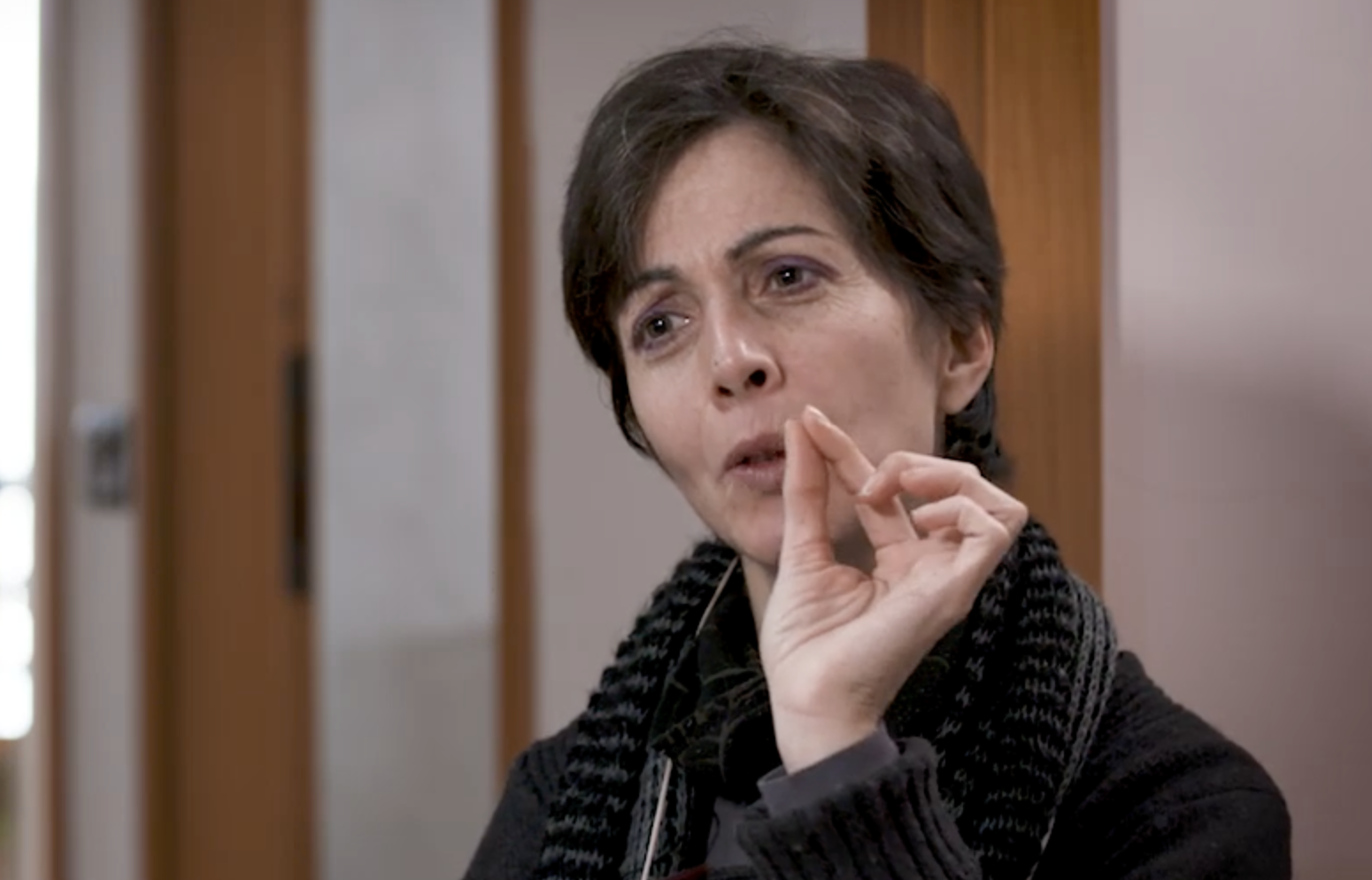
Після інсульт Фабіани понад десять років лікарня, де її госпіталізували в 8 квітня 2012, отримала нагороду Відзнака ESO Angels за інсультний догляд — кульмінацію проекту, який тривав п’ять років, і відданість чотирьох консультантівAngels.
Лікарня Санта-Марія Горетті на латиноамериканській території є одним із 14 центрів інсульт, що обслуговують 5,7 мільйона громадян італійського регіону Лазіо, а також однією з чотирьох лікарень, які були призначені для роботи в центрах після створення регіонального протоколу в 2020 році. Коли у 2018 році Lorenza Spagnuolo вперше включила в лікарню Angels, вони отримали лікування лише 34 пацієнтів, а «час від дверей до голки» перевищив 100 хвилин. У період з 2019 по 2020 роки Еліза Сальваті та Лорензо Базздані провели навчальні семінари та симуляції, провели багатопрофільні зустрічі та реорганізували шлях інсульт. Консультування Алесії Санторі розпочалося до кінця 2021 року. Окрім залучення Санти Марії Горетті до проекту з моніторингу якості MonitorISA та роботи над стандартизацією та попереднім повідомленням місцевого ЕМД, вона розробила регіональну стратегію, яка включала залучення як лікарень-центрів, так і лікарень зі спицями на зустрічах і семінарах, а також об’єднала спільноту Лазіо з питань інсульт на День Angels, який кульмінував план дій для регіону.
Щасливий кінець прийшов на розгляд, коли лікарня Санта-Марія Горетті здобула дві послідовні нагороди ESO Angels у 2023 році. В інших країнах, як нові, так і створені центри, виявляють інтерес до імітації латиноамериканської мережі.
Часто зазначається, що пацієнт із інсультом помирає або стає постійно інвалідом кожні 30 хвилин, оскільки його перевели до не тієї лікарні. Метою Лазіо було перетворити Санту Марію Горетті у «правильну» лікарню, щоб історії на кшталт Фабіана завжди мали кращі закінчення.
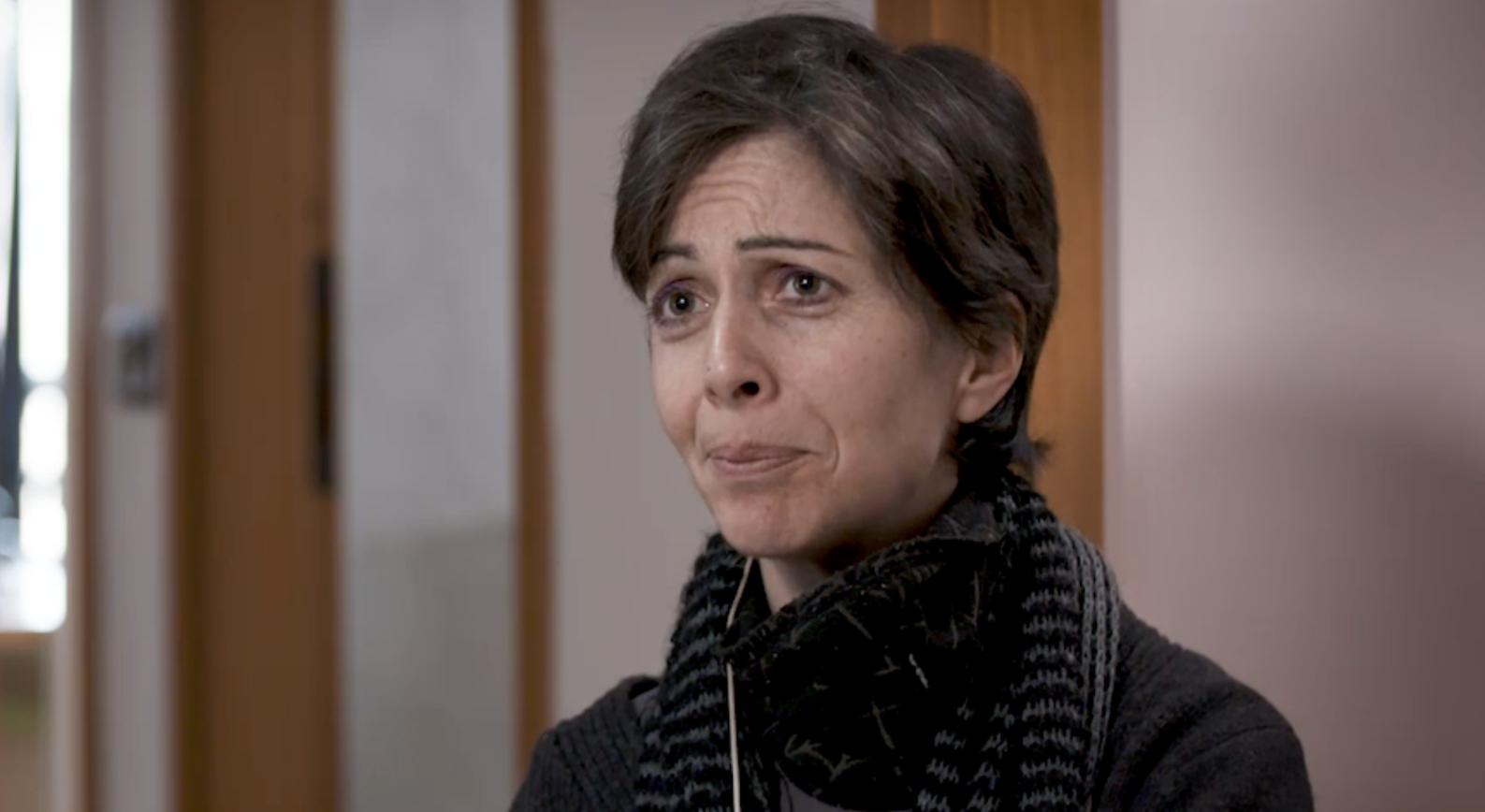
ФАБІАНА зараз 48 років і все ще живе в латиноамериканці, де вона працює неповний робочий день в офісі.Протягом п’яти років з моменту, коли ми востаннє її чули, вона досягла прогресу в розмові та ходьбі. Прогулянки рано-вранці тепер допомагають їй почуватися збалансованими та є можливостями розмірковувати про її життя. Нещодавно вона почала ходити на роботу.
Але зараз вона також знає, що «не допустити перемоги у інсульт» виходить за рамки подолання неврологічних дефектів після інсульт — це також прагнення до включення в байдуже, нетерпляче суспільство.
Випускник права Фабіана намагалася працювати в місцевому суді, але через її вади її колеги були роздратовані, і вона пішла. Вона проводить кампанії для суспільства, доступного для людей з обмеженими можливостями, що включає людей з різними можливостями, але каже, що швидкість змін неприпустима «принаймні у моїй провінції».
«Ми все ще дуже невидимі. Мені пощастило, тому що я можу керувати автомобілем і ходити, але громадські будівлі та громадський транспорт ще не доступні для багатьох людей, які користуються інвалідними візками. Загалом, я думаю, що суспільство не готове нас розуміти. Ніхто не відчуває терпіння, коли я розмовляю погано або повільно. Інші люди, які пережили інсульт, погоджуються, що єдина емпатія, яку ми переживаємо, полягає в наших сім'ях і один одному».
Синам Фабіани зараз 21 і 11 років, і їх неминуче споживає своє життя. Вона каже: «Френско та Андреа були поруч зі мною під час першого етапу одужання. Я знайшов силу в любові до них, і це допомогло мені стати краще. Але я боюся, що вони ще не зрозуміли, як бути поряд з людьми, які мають різні здібності».
Окрім підтримки батька, який також піклується про свою матір-інвалідів, «сім'я» осіб, які вижили після інсульт, допомагає Фабіані відчувати себе «ближчою та краще зрозумілою». Вона каже: «Я докладаю всіх зусиль, щоб не зануритися в депресію, і що мені найбільше допомагає говорити з молодими пацієнтами з інсульт. Я не люблю говорити з нормальними людьми, оскільки мені здається, що вони дійсно розуміють».
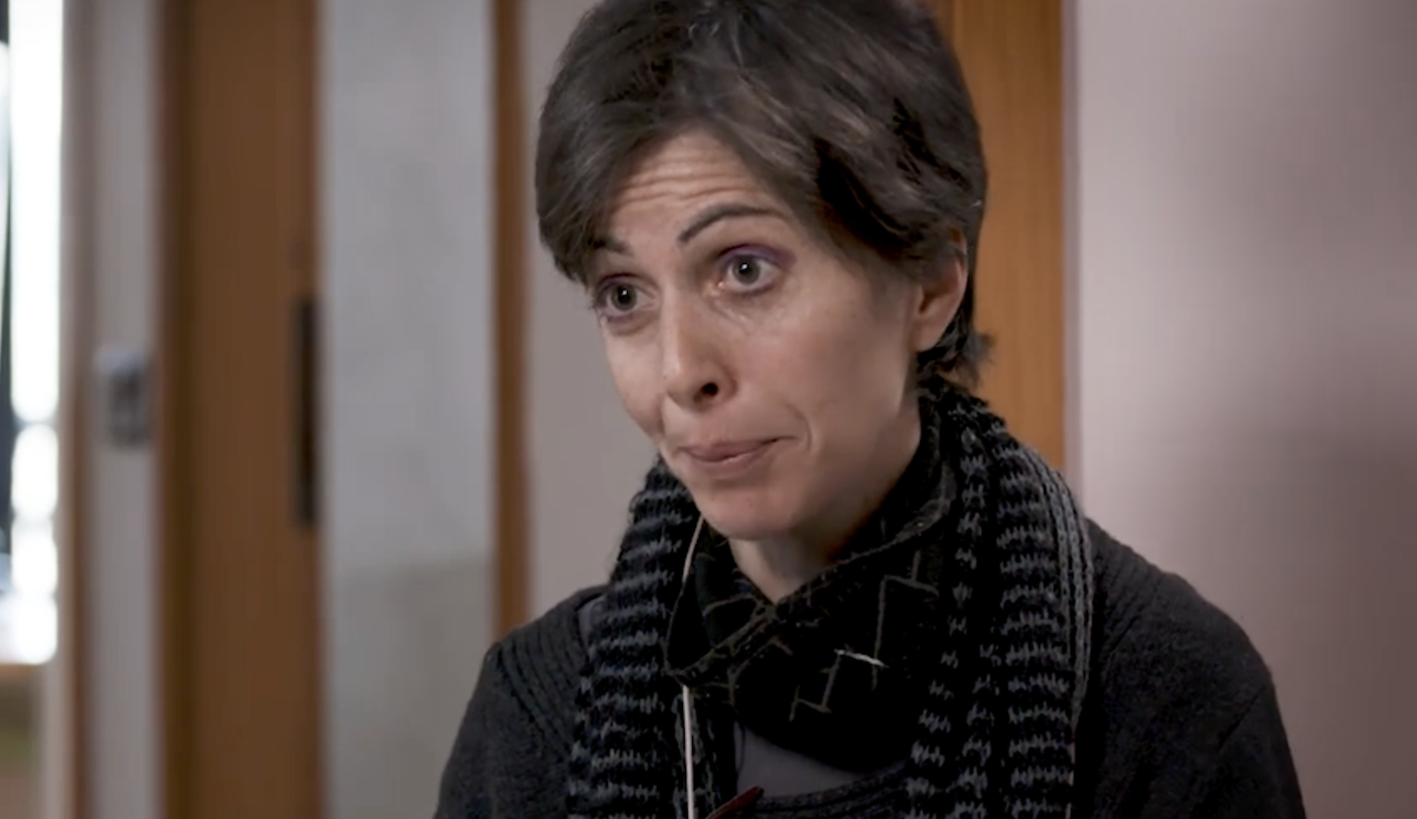
Якщо повільна та навмисна мова Фабііни викликає занепокоєння у деяких людей, ймовірно, її остаточні слова розчарують їх ще більше. Сказано так, ніби кожне речення є його власним абзацом, її повідомлення надається з незвичайною чіткістю та силою:
«Ми не деактивовані. Кожен з нас, кожен, по-різному може.
«Що це означає?
«У мене є деякі проблеми з мовленням.
«І те, як я ходжу.
«І ти? У чому твоя проблема?
«Я впевнена, що у вас є проблема, тому ми всі в змозі по-різному.
«Але ми знаємо, що нашою причиною є інсульт.
«Який у вас?»

